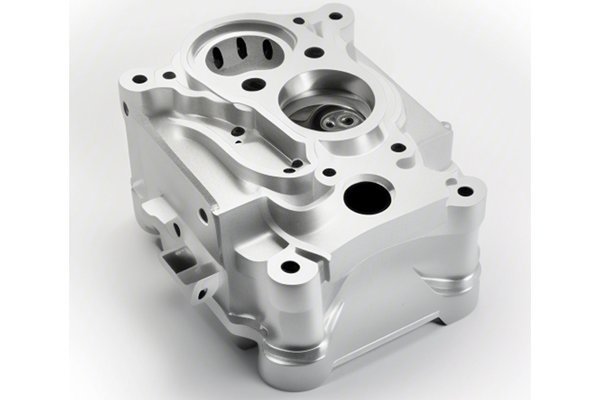Opening
Did you know that nickel-based alloys are utilized in some of the most extreme environments on Earth? These materials are hardly anything like ordinary metals; they possess unique properties that outperform many other alloys, especially in demanding situations. As industries seek precision and performance, the use of nickel-based alloys in CNC prototyping has surged, reflecting a significant shift in how we approach manufacturing and design. This article will delve into the advantages and diverse applications of nickel-based alloys when harnessed in CNC prototypes, shedding light on their growing importance across various sectors.
The Unique Properties of Nickel-Based Alloys
Corrosion Resistance
One of the standout features of nickel-based alloys is their exceptional resistance to corrosion. This characteristic is vital for industries such as oil and gas, marine engineering, and chemical processing, where exposure to harsh chemicals and severe environmental conditions is commonplace. This alloy allows manufacturers to engineer components that can withstand the test of time, thus reducing replacement frequency and maintenance costs.
High-Temperature Stability
Nickel-based alloys maintain structural integrity under extreme temperatures, making them ideal for prototypes designed to function in high-stress environments. For example, gas turbines and aerospace applications often require equipment that can endure heat without losing performance. By utilizing nickel-based alloys, CNC prototypes can better resist thermal degradation and afford greater reliability in performance.
Strength and Durability
With a combination of impressive tensile strength and fatigue resistance, nickel-based alloys offer durability that surpasses many other materials. This is particularly beneficial in applications requiring heavy mechanical loads, such as turbine blades or industrial machinery components. When used in CNC prototyping, these alloys help create parts that can endure rigorous testing and real-world applications.
Machinability
Machinability might seem like a minor consideration, but it’s a crucial factor in the CNC prototyping process. Despite the hardness of nickel-based alloys, advancements in machining technology have led to improved machinability for these materials. Utilizing modern tools and precise CNC machinery, manufacturers can produce intricate and fine designs without sacrificing quality. This characteristic enables faster turnaround times for prototypes without compromising performance.
Applications Across Industries
Aerospace
The aerospace industry presents one of the most significant applications for nickel-based alloys. From the engine components to structural designs, these alloys help ensure aircraft are lighter yet stronger, enhancing fuel efficiency while maintaining safety. The CNC machining of prototypes allows for rapid iterations and testing of various designs, ultimately leading to better overall performance.
Oil and Gas

In the oil and gas sector, where equipment is often exposed to corrosive and high-pressure environments, nickel-based alloys stand out as an ideal choice. From drilling to refining, components such as valves, pumps, and heat exchangers benefit from the durability and corrosion resistance of these materials. CNC prototyping plays a vital role in this industry by enabling rapid adjustments to designs in accordance with regional regulations and technological advancements.
Marine Engineering
Marine applications often require materials that can withstand saltwater corrosion and high pressures. Nickel-based alloys excel in these conditions, making them ideal for marine engine parts, subsea equipment, and structures. By utilizing CNC prototypes, marine engineers can rapidly develop and assess designs, ensuring they are robust enough to withstand ocean environments.
Chemical Processing
Chemical processing environments are duplicated by harsh chemicals that can corrode standard materials. Nickel-based alloys provide a reliable answer to these challenges, making them crucial for equipment like reactors, fittings, and piping systems. CNC prototyping in this sector not only accelerates the design process but also ensures that all components are tested for efficacy and safety prior to full-scale production.
Medical Applications
In the medical field, nickel-based alloys are making a mark, especially in implants and surgical instruments. Their biocompatibility, coupled with corrosion resistance, makes them suitable for devices that reside within the human body. The precision offered by CNC machining is vital in ensuring that these devices are manufactured with extreme accuracy to promote patient safety and comfort.
The Importance of Nickel-Based Alloys in CNC Prototyping
Nickel-based alloys’ unique properties not only address specific industry needs but also provide manufacturers with a competitive edge. The flexibility and efficiency offered by CNC machining enable companies to rapidly prototype and refine designs, resulting in faster time-to-market.
This adaptability is especially important in today’s fast-paced industrial environment, where innovation is key to staying ahead. The ability to test different configurations and materials through prototyping strengthens product development and minimizes risks associated with full-scale production.
In conclusion, nickel-based alloys are a powerful tool in the CNC prototyping realm, offering an exceptional combination of corrosion resistance, temperature stability, strength, and machinability. These properties open doors in a myriad of industries, including aerospace, oil and gas, marine engineering, chemical processing, and medical applications.
The ongoing collaboration between advanced CNC technology and nickel-based materials highlights the continuous evolution of manufacturing processes. As industries drive toward higher performance, lower costs, and increased reliability, the integration of nickel-based alloys into CNC prototyping will undoubtedly play a pivotal role in shaping the future of engineering and design.
As you reflect on the contents of this blog, consider the significant advantages that nickel-based alloys could bring to your projects. In a world increasingly defined by technological advancement and innovation, understanding and leveraging these materials could be the key to unlocking new possibilities in your industry. Whether you’re a manufacturer, engineer, or enthusiast, the potential applications and benefits of nickel-based alloys in CNC prototyping are worth thought and consideration for future exploration.






